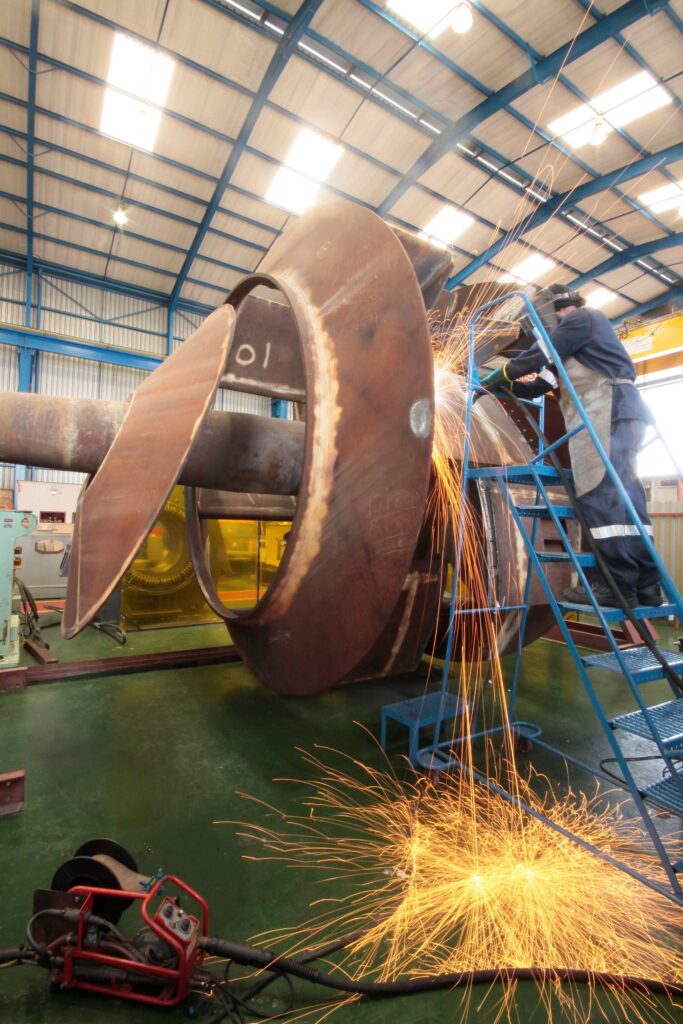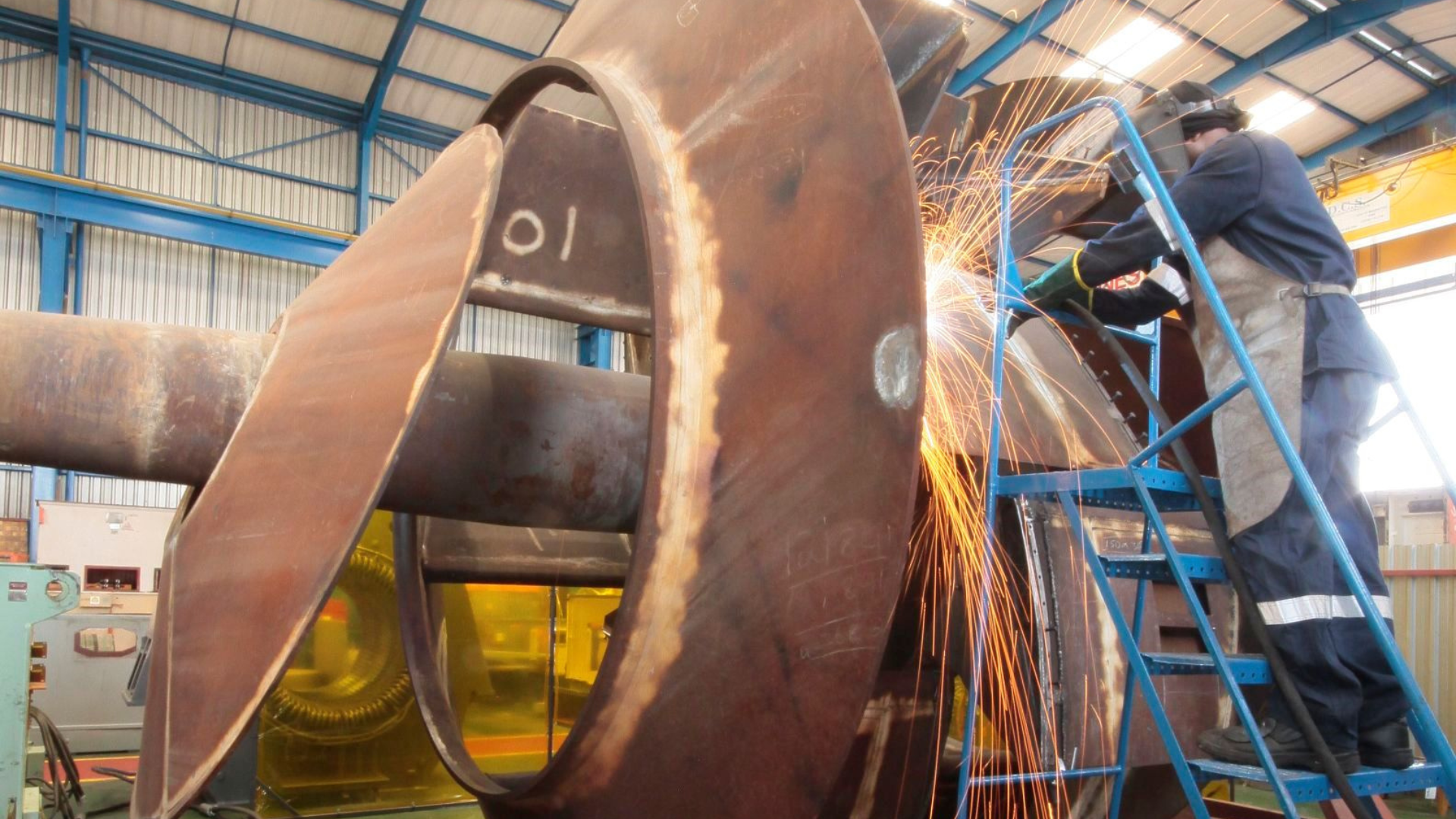Industrial fans play a crucial role in various industry applications, including power generation, mining, mineral processing, smelting, and manufacturing, where they are used to maintain a safe and healthy working environment for people and favourable operating conditions for equipment. Without these essential components, production would grind to a halt, which could have a catastrophic impact on a company’s bottom line. Thus, the success and efficiency of operations that rely on fans for ventilation and process often depend on the quality and performance of this equipment.
Industrial fans typically operate in harsh environments, moving air that is corrosive, erosive, or hot, meaning that the fan’s specifications must be suited to its particular application. Several critical factors must therefore be considered when sourcing industrial fans from an Original Equipment Manufacturer (OEM), as choosing the right supplier is a pivotal decision for a company.
Industrial fan OEMs generally supply equipment to two market sectors – the first being the new build sector which includes capital expenditure and expansion projects and the second comprising the existing installed base where fans need to be repaired, upgraded, or ultimately replaced when they reach the end of their lifecycle.
In both market sectors, customers not only seek fans that are suited to their specific operations in terms of pressure and volumes of air that must be moved but also want equipment that is as cost-effective and as efficient as possible. However, in engineering terms, these two factors typically work against one another. It is therefore important to consider the lifecycle cost of a fan – a combination of the running cost and the capital cost of the equipment.
Tailoring solutions
When choosing an industrial fan OEM, one of the primary factors to consider is whether the manufacturer has in-house design capabilities. A company that can design and engineer their own fans shows a commitment to tailoring solutions to the unique needs of its customers. These capabilities enable them to design and build fans that are more efficient and better aligned with a customer’s specific requirements.
Because of the presently limited demand for fans in new construction projects, several leading South African OEMs collaborate with international technology partners capable of undertaking large-scale development work cost effectively. While much of the equipment may be designed by or sourced from overseas partners, the local OEMs are qualified and experienced in manufacturing, installation, and the provision of backup services to local clients.
Local engineering capabilities also play a big role in this, as good local OEMs would often source standard products from their technology partners and customise them for local applications. These OEMs have qualified engineers who can develop new concepts for standard fans, build prototypes and test them locally.
Fan efficiency testing is another factor to consider when selecting an OEM. Efficiency is paramount in various industries, including manufacturing and mining, as energy consumption is now a major factor in the decision-making process, especially for long-term installations. A reliable supplier should have the capability to ensure that their fans operate at peak efficiency when first commissioned and well into the life of the plant. Testing and quality control processes should be standard practice, giving customers confidence in the performance of the equipment they purchase.
Besides the energy efficiency aspects, the OEM has to ensure the right selection and build specification of the fan to suite the specific conditions. Issues such as high wear, corrosive atmospheres, or high temperatures, have to be brought into the design to ensure the lowest cost-of ownership over the working life of the fan.
Service offerings
Equally crucial are the service offerings of an OEM. Apart from fan manufacturing, a reliable industrial fan supplier should offer a range of services that cover the entire lifespan of the equipment. This includes fan repairs, maintenance services, and technical support. This demonstrates a commitment to customer satisfaction and long-term success. Having good preventative maintenance measures and the right people to ensure that they are carried out, will prevent unplanned outages and a loss of production.
When selecting an industrial fan supplier, customers ultimately want to know that they are getting value for money. However, this comes down to a fine balance between cost-effectiveness and efficiency. By engaging the right OEM, companies can ensure that they achieve the lowest cost-of-ownership for their industrial fans over the life of the plant.



